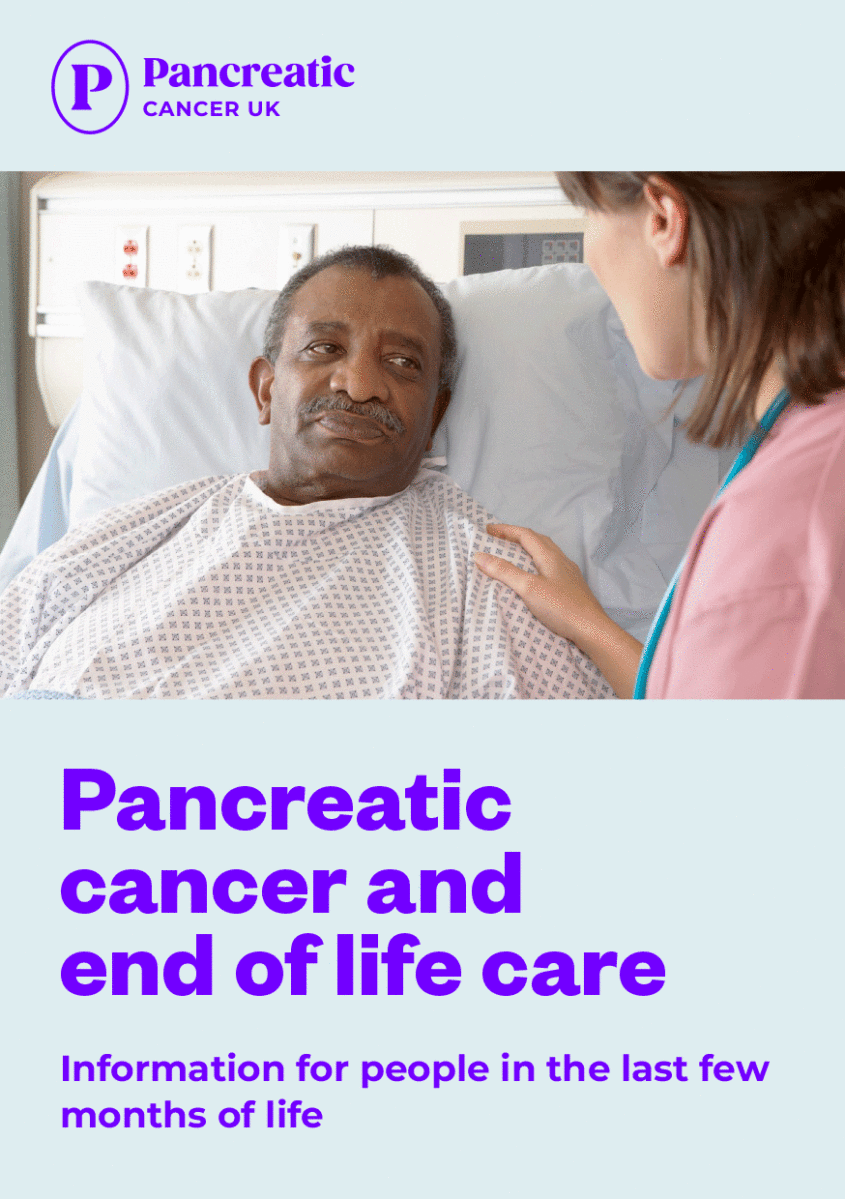Our information explains how things should happen. Be aware that sometimes you may have to push for things to be done. For example, don’t be afraid to ask questions, or ask for care and support to be put in place. If you need information and support, you can always contact our specialist nurses on our free Support Line.
Caring for your loved one at home
If you are looking after your loved one at home, there will be support from different healthcare professionals including your GP and district nurses.
You may find the demands on you can increase quite quickly in the last few weeks or days. You might need to do more for your loved one, including:
- washing and personal care
- making sure they are comfortable
- helping with eating and drinking
- talking to healthcare professionals
- ordering repeat prescriptions
- giving medicines.
It can be overwhelming and tiring but some people take comfort from being able to provide this care. Try not to worry about things that don’t matter too much, like housework. If friends or family offer practical help, accept it. This will give you time to focus on supporting your family member, and to have some rest.
Marie Curie has lots of practical information about how to help your family member.
Read more about the support you may be able to get at home, including getting palliative and personal care.


